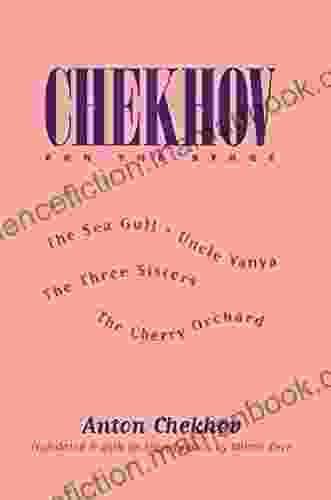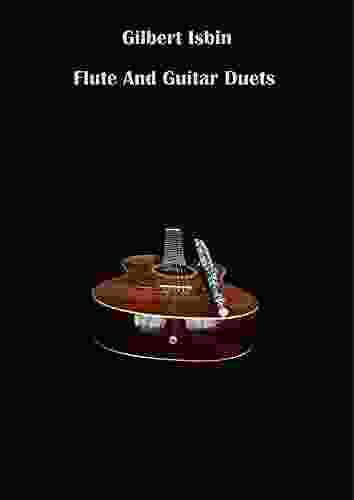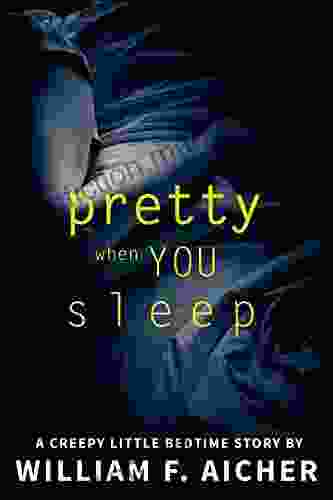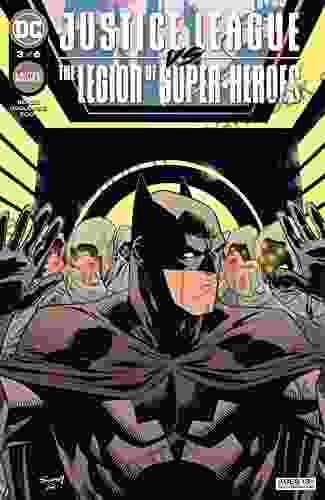The Seagull, Uncle Vanya, The Three Sisters, The Cherry Orchard: A Comprehensive Exploration of Chekhov's Masterpieces

Anton Chekhov is widely regarded as one of the greatest playwrights of all time. His plays are characterized by their realism, their insights into human nature, and their exploration of the human condition. Four of his most famous plays are The Seagull, Uncle Vanya, The Three Sisters, and The Cherry Orchard. These plays are often referred to as Chekhov's "Big Four" and are considered to be some of the most important works of drama ever written.
4.9 out of 5
| Language | : | English |
| File size | : | 778 KB |
| Text-to-Speech | : | Enabled |
| Screen Reader | : | Supported |
| Enhanced typesetting | : | Enabled |
| Print length | : | 240 pages |
In this article, we will take a comprehensive look at Chekhov's "Big Four". We will explore the themes, characters, and settings of these plays, and we will examine how Chekhov uses his unique style to create masterpieces that continue to resonate with audiences today.
The Seagull
The Seagull was written in 1896 and is the first of Chekhov's "Big Four" plays. The play is set on a country estate in Russia and tells the story of a group of people who are struggling with love, loss, and disappointment. The main characters include:
- Irina Arkadina, a famous actress
- Konstantin Treplev, her son
- Nina Zarechnaya, a young actress
- Boris Trigorin, a famous writer
- Eugene Dorn, a doctor
- Pyotr Sorin, Konstantin's uncle
The Seagull is a tragicomedy that explores the themes of love, art, and the search for meaning in life. The play is full of beautiful language and insightful observations about human nature.
Uncle Vanya
Uncle Vanya was written in 1897 and is the second of Chekhov's "Big Four" plays. The play is set in a country estate in Russia and tells the story of a man named Ivan Voinitsky, who has spent his life working on his family's estate while his brother, Alexander Serebryakov, has enjoyed the fruits of his labor. The main characters include:
- Ivan Voinitsky, the title character
- Alexander Serebryakov, his brother
- Yelena Serebryakova, his wife
- Sonya Serebryakova, their daughter
- Mikhail Astrov, a doctor
- Marina, a nanny
Uncle Vanya is a tragicomedy that explores the themes of love, duty, and the search for meaning in life. The play is full of humor and pathos, and it offers a powerful indictment of the Russian aristocracy.
The Three Sisters
The Three Sisters was written in 1900 and is the third of Chekhov's "Big Four" plays. The play is set in a provincial town in Russia and tells the story of three sisters who dream of a better life. The main characters include:
- Olga Prozorov, the eldest sister
- Masha Prozorov, the middle sister
- Irina Prozorov, the youngest sister
- Andrei Prozorov, their brother
- Natasha Ivanovna, their sister-in-law
- Fyodor Kulygin, Masha's husband
- Vasili Solyony, a captain in the army
The Three Sisters is a drama that explores the themes of love, loss, and the search for meaning in life. The play is full of beautiful language and insightful observations about human nature.
The Cherry Orchard
The Cherry Orchard was written in 1904 and is the fourth and final of Chekhov's "Big Four" plays. The play is set on a country estate in Russia and tells the story of a family who is facing the loss of their ancestral home. The main characters include:
- Lyubov Ranevskaya, the owner of the cherry orchard
- Gaev, her brother
- Varya, her adopted daughter
- Anya, her youngest daughter
- Lopakhin, a wealthy merchant
- Trofimov, a student
The Cherry Orchard is a tragicomedy that explores the themes of love, loss, and the search for meaning in life. The play is full of humor and pathos, and it offers a powerful indictment of the Russian aristocracy.
Chekhov's Style
Chekhov's plays are known for their realism, their insights into human nature, and their exploration of the human condition. Chekhov's realism is evident in his use of everyday language, his detailed descriptions of setting, and his focus on the inner lives of his characters. His insights into human nature are evident in his exploration of themes such as love, loss, and the search for meaning in life. His exploration of the human condition is evident in his portrayal of the struggles and triumphs of his characters.
Chekhov's style is also characterized by his use of irony and understatement. He often uses irony to highlight the contradictions and absurdities of human behavior. He also uses understatement to create a sense of pathos and to emphasize the poignancy of his characters' situations.
Anton Chekhov's "Big Four" plays are masterpieces of drama that continue to resonate with audiences today. These plays are full of beautiful language, insightful observations about human nature, and powerful indictments of the Russian aristocracy. Chekhov's style is characterized by his realism, his insights into human nature, and his exploration of the human condition. He uses irony and understatement to create a sense of pathos and to emphasize the poignancy of his characters' situations.
If you have never read any of Chekhov's plays, I encourage you to do so. These are some of the most important works of drama ever written, and they offer a unique and profound insight into the human condition.
Additional Resources
* Anton Chekhov on Wikipedia * The Anton Chekhov Museum *
4.9 out of 5
| Language | : | English |
| File size | : | 778 KB |
| Text-to-Speech | : | Enabled |
| Screen Reader | : | Supported |
| Enhanced typesetting | : | Enabled |
| Print length | : | 240 pages |
Do you want to contribute by writing guest posts on this blog?
Please contact us and send us a resume of previous articles that you have written.
 Top Book
Top Book Novel
Novel Fiction
Fiction Nonfiction
Nonfiction Literature
Literature Paperback
Paperback Hardcover
Hardcover E-book
E-book Audiobook
Audiobook Bestseller
Bestseller Classic
Classic Mystery
Mystery Thriller
Thriller Romance
Romance Fantasy
Fantasy Science Fiction
Science Fiction Biography
Biography Memoir
Memoir Autobiography
Autobiography Poetry
Poetry Drama
Drama Historical Fiction
Historical Fiction Self-help
Self-help Young Adult
Young Adult Childrens Books
Childrens Books Graphic Novel
Graphic Novel Anthology
Anthology Series
Series Encyclopedia
Encyclopedia Reference
Reference Guidebook
Guidebook Textbook
Textbook Workbook
Workbook Journal
Journal Diary
Diary Manuscript
Manuscript Folio
Folio Pulp Fiction
Pulp Fiction Short Stories
Short Stories Fairy Tales
Fairy Tales Fables
Fables Mythology
Mythology Philosophy
Philosophy Religion
Religion Spirituality
Spirituality Essays
Essays Critique
Critique Commentary
Commentary Glossary
Glossary Bibliography
Bibliography Index
Index Table of Contents
Table of Contents Preface
Preface Introduction
Introduction Foreword
Foreword Afterword
Afterword Appendices
Appendices Annotations
Annotations Footnotes
Footnotes Epilogue
Epilogue Prologue
Prologue Angus Curran
Angus Curran Tochi Onyebuchi
Tochi Onyebuchi Eugene Gold
Eugene Gold Angela Franks
Angela Franks Chris Wiltz
Chris Wiltz Eric Stone
Eric Stone A K Scott
A K Scott Marilyn Cochran Smith
Marilyn Cochran Smith Neelam Patel
Neelam Patel W E B Du Bois
W E B Du Bois David Burke
David Burke Rosie Thomas
Rosie Thomas Kevin Kryptor
Kevin Kryptor Jean Madsen
Jean Madsen Linda S Dowling
Linda S Dowling Erika Meitner
Erika Meitner Dan Cosley
Dan Cosley Angus Donald
Angus Donald David Stewart
David Stewart Mikhail Tank
Mikhail Tank
Light bulbAdvertise smarter! Our strategic ad space ensures maximum exposure. Reserve your spot today!
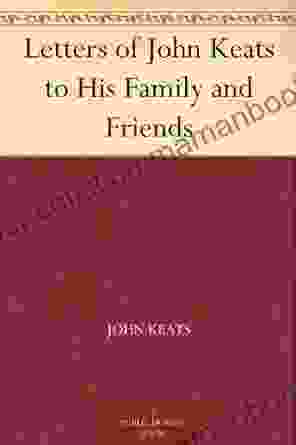
 Willie BlairThe Enchanting Epistles: Exploring the Letters of John Keats to His Family...
Willie BlairThe Enchanting Epistles: Exploring the Letters of John Keats to His Family... Duane KellyFollow ·9.2k
Duane KellyFollow ·9.2k Al FosterFollow ·12.9k
Al FosterFollow ·12.9k Charlie ScottFollow ·9.3k
Charlie ScottFollow ·9.3k Rob FosterFollow ·6.3k
Rob FosterFollow ·6.3k Edison MitchellFollow ·15.9k
Edison MitchellFollow ·15.9k Eli BlairFollow ·17.7k
Eli BlairFollow ·17.7k Gerald ParkerFollow ·4k
Gerald ParkerFollow ·4k Marcel ProustFollow ·12.5k
Marcel ProustFollow ·12.5k
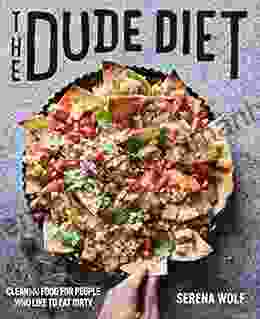
 Ashton Reed
Ashton ReedClean(ish) Food for People Who Like to Eat Dirty
By: [Your Name] Are...
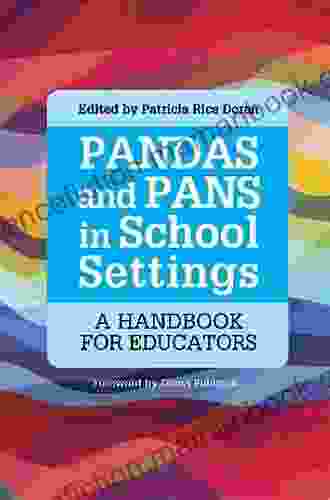
 Ronald Simmons
Ronald SimmonsThe Handbook for Educators: A Comprehensive Guide to...
The Handbook for...

 Derrick Hughes
Derrick HughesAny Place Hang My Hat: A Hauntingly Beautiful Novel by...
A Masterpiece of...
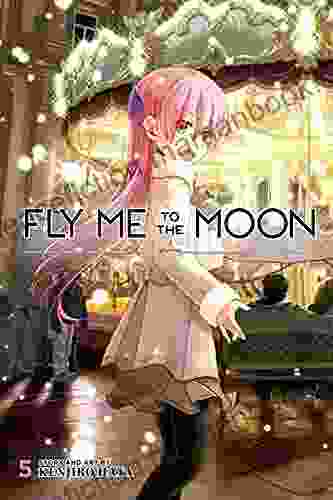
 Adrien Blair
Adrien BlairFly Me to the Moon Vol. 5: A Lunar Odyssey through...
In the vast...
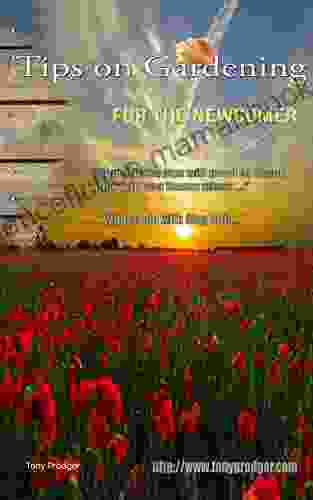
 William Powell
William PowellTips By Gardeners On Variety Of Subjects
Gardening...
4.9 out of 5
| Language | : | English |
| File size | : | 778 KB |
| Text-to-Speech | : | Enabled |
| Screen Reader | : | Supported |
| Enhanced typesetting | : | Enabled |
| Print length | : | 240 pages |


